Just a few hours earlier, as helicopters clattered overhead and thousands joined the good-humoured but impassioned March for Europe, an evening of contemporary art felt like the last thing anyone needed. On this day of all days, launching an art festival inspired by the success of Nuit Blanche in Paris felt like an unnecessary application of salt to the wound. While art can provide solace in times of crisis, really good art needs also to do so much more, and it was hard to see how an event conceived many months ago could adequately respond to the extraordinary developments of the past 10 days.
People who had had enough of the march on Saturday found themselves drifting away from Whitehall, towards the Mall and the ICA, where a stage and sound system was being constructed for an epic, evening-long performance piece by British artist Linder. As protesters thronged along Pall Mall it was easy to assume that the sound system being put together on the Duke of York steps was connected with the demonstration, and around it rose a crescendo of the staple chant, “EU, WE LOVE YOU!”.
The occasional whisper of oud escaped to mix with the foul smells of one of London’s filthiest stationWith the heart of the event in Westminster, a number of the installations were located around Trafalgar Square, and seemed to absorb and react to the sense of crisis in the air. In the crowded ticket hall at Charing Cross Underground station, as a group of us were issued with fluorescent green wristbands and numbered stickers, I wondered what sort of subterranean nightmare was about to unfold. Tube stations, so often the focus of anxiety about terrorist attacks in the city, seem synonymous with threat.
And yet, as we descended the stairs to the platforms, we were met with the glorious, exotic scent of oud. It is a strange smell, because while it is entirely natural, it is remarkably strong, and familiar because of its use in perfumes. It seemed to change too, sometimes cloying and then a moment later fresh and invigorating, and its effect on the empty Jubilee Line platforms (main picture), out of use for some 20 years now, was transformative. Carefully lit, the floor painted white in areas, it was no longer anchored in space and time: it was almost as if we had journeyed upwards, above ground, not down. And while these platforms have been disused since the Nineties, they looked perfectly, disarmingly, familiar. As we emerged from this strange other world, the occasional whisper of oud escaped to mix with the foul smells of one of London’s filthiest stations, like odd snatches from a half-remembered dream.
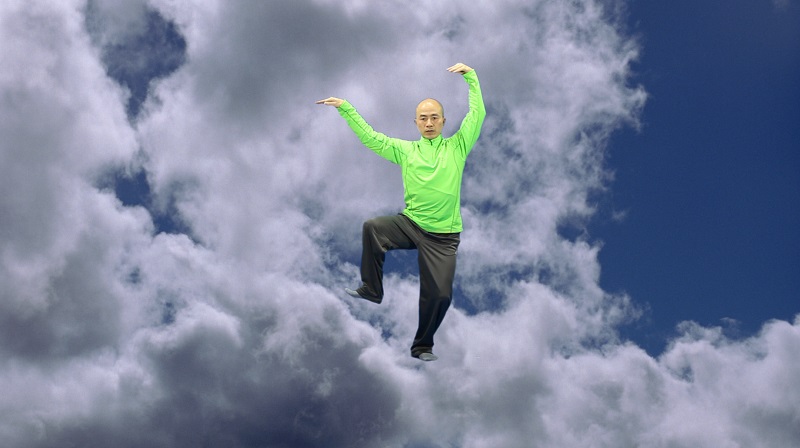 If Koo Jeong A’s sensory installation at Charing Cross defied expectations about an apparently limited, clearly-defined space, 2013 Turner Prize-winner Laure Provost’s After After, inside Admiralty Arch, played to our darkest suspicions about the rot at the heart of the British establishment. Queuing to get in we were asked by an agitated man with carrier bags wrapped round his ankles if we had “seen Betty” – was this part of the performance? A scatty and put-upon “guide” left us standing in a dark corridor, our minds set spinning as glimpses through half-opened doors set about confusing and disorienting us. The door to a sleazily blue-lit room opened, and a woman asked us if we’d like a drink. The room stank of fish, and she handed round shot glasses of “vodka and squid”, politely informing us that she used to work for John Lewis. I’ve never been so glad to get out in my life, but what an exhilarating piece of theatre it was.
If Koo Jeong A’s sensory installation at Charing Cross defied expectations about an apparently limited, clearly-defined space, 2013 Turner Prize-winner Laure Provost’s After After, inside Admiralty Arch, played to our darkest suspicions about the rot at the heart of the British establishment. Queuing to get in we were asked by an agitated man with carrier bags wrapped round his ankles if we had “seen Betty” – was this part of the performance? A scatty and put-upon “guide” left us standing in a dark corridor, our minds set spinning as glimpses through half-opened doors set about confusing and disorienting us. The door to a sleazily blue-lit room opened, and a woman asked us if we’d like a drink. The room stank of fish, and she handed round shot glasses of “vodka and squid”, politely informing us that she used to work for John Lewis. I’ve never been so glad to get out in my life, but what an exhilarating piece of theatre it was.
As Linder’s durational performance Destination Moon. You must not look at her! got going on the Duke of York steps, members of the 60-strong cast had donned sensible plastic rain capes, as we were deluged by yet another torrential downpour. The crowd seemed optimistic, the night was yet young. And as free performances and installations from internationally-acclaimed artists began at Covent Garden, Somerset House and Southwark Cathedral, London felt suddenly a little less lost, and a little bit closer to Europe once again (pictured above: Xu Zhen at Somerset House).






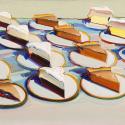


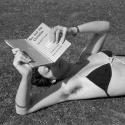
![SEX MONEY RACE RELIGION [2016] by Gilbert and George. Installation shot of Gilbert & George 21ST CENTURY PICTURES Hayward Gallery](/sites/default/files/styles/thumbnail_125_x_125_/public/mastimages/Gilbert%20%26%20George_%2021ST%20CENTURY%20PICTURES.%20SEX%20MONEY%20RACE%20RELIGION%20%5B2016%5D.%20Photo_%20Mark%20Blower.%20Courtesy%20of%20the%20Gilbert%20%26%20George%20and%20the%20Hayward%20Gallery._0.jpg?itok=3oW-Y84i)
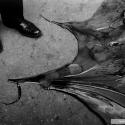
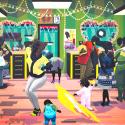
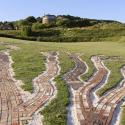
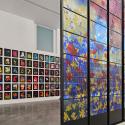
Add comment